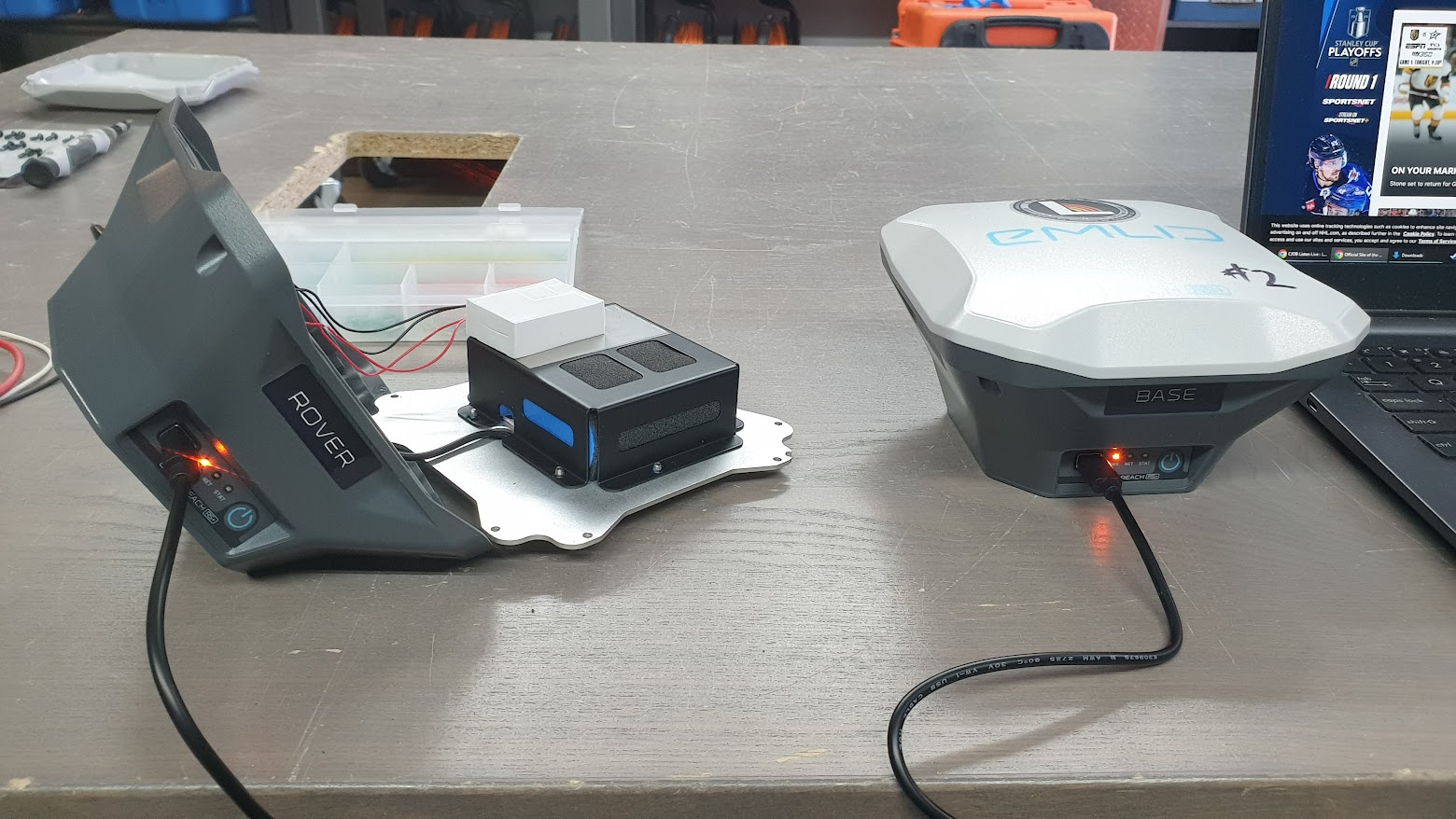We maintain a small fleet of RTK GPS systems (Emlid Reach RS+ units or similar). But sometimes they sit too long on the shelf and parasitic drain kicks in. The manufacturer recommends recharging every three months, but ooops, this one went too long. If the batteries are too low, the battery management system (BMS) won’t charge the batteries at all when you attach the USB charger cable. In this case, the batteries were testing at 0.9V rather than the desired 3.4V.
Solution: open the device, expose a tiny bit of conductor on the battery harness, and attach 3V worth of alkaline batteries for a short period. Once the lithium batteries are up a little, you can then charge with the normal USB charger again.

The manufacturer does not recommend opening the sealed unit, as it voids the IP67 rating. And this is not a best practice. But it works. The above photos were taken in April and the unit has been trucking along ever since. Saved a few thousand dollars :)


Yeah, there is risk of some chemistry happening at really low voltages which cause irreversible changes to the structure of the material. Given how the battery responded to tests afterwards, I can only presume that these didn’t happen. Short of dissecting the cells and putting them through XRD. Mind you, I do know a few people in the lab…